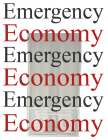In 2009, I was the co-writer of a ‘good news’ show called Deliver!, which aired on Venus TV in the UK. In the last show of the season, we covered an ‘alternative’ economy model called LETS (Local Exchange Trading System) that was helping communities across the planet to get through recession. We described it as something that takes money ‘out of the equation and rewrites the rules’. It’s still up at YouTube here:
Fast-forward a couple of years to 2011, when Dr. Imran Chaudhry at Pakistan First Research Institute, the research division of PakistanFirst, asked me to co-author a paper for an alternative economy. (I had worked with PakistanFirst once before in a consultative capacity, on a paper making recommendations for provincial reforms in Pakistan.) He was aware of the alternative economy model covered in our news show, and liked the idea enough that he wanted PakistanFirst to present a model specifically tailored for Pakistani rural communities and villages. The resulting paper offers a system based loosely on LETS. We’ve dubbed it VSLE (Value, Skill and Labour Exchange). Like LETS, it’s interest-free and works on the principle of cooperation (collective interest) instead of profit (self interest), but it also has some distinguishing features of its own.

The paper was completed a few weeks ago and it has just been published at Smashwords under the grand title, Emergency Economy (though it’s not necessarily a model just for periods of recession; and its comments apply beyond just microeconomy).
Click here to pick up a PDF copy of this paper for free. You don’t need an account to download it. The provincialism paper I mentioned is available for free as well.
Marghdeen Learning Centre participants: I’d be particularly interested to know your thoughts on this, in light of the fact that the next MLC course promises to contain something ‘practical’. Do you see any similarities – in principle – between this alternative economy model and the ‘Marghdeen’ that Iqbal envisioned? Even if you don’t read the paper, the above video should give you a good idea of what I’m getting at. And this recent post offers a clue as well.





Greetings Saleena,
This is an intriguing subject. Thank you for sharing the video and access to your paper. I eagerly look forward to reading “Emergency Economy.”
All good wishes,
robert
Thanks Robert – I hope you like the paper.
Already read once quickly and found it a wonderful and novel idea, mostly read it as sci-fi, there was a time when people felt in love with the Marx’s surplus value concept, and felt a fair system for supressed was in offing, but than it never materialized as once Parwez sahib said there was no incentive for the one who worked more to leave his riches for the under worked or under preivileged.
Will read this document very carefully and attentively and will come with full comments.
Dar Sahib, Thanks so much for the comments you have posted over at Smashwords. You aptly have highlighted the parts that were most important to me personally.
Please also see my other comment to you and Margaret below.
Collective interest instead of profit? What would all the middlemen and big corporations do to become rich in this ‘alternative’ economy when no longer able do so off the backs of hard-workers making minimum wages at the bottom? Fair system for the suppressed, sounds too good to be true.
Ah, but that’s why the model runs parallel to (rather than in competition against) profit-orientated economy, and is said only to get small communities through recession. But it doesn’t stop it from being a commentary on the *possibility* of this type of economy. 😉
Actually, you have raised a valid point – namely, how to get businesses interested in what is essentially a ‘non-profit’ economy – and it is one discussed in the paper as well. It has been an ongoing concern in LETS, and we have commented on the reasons why in our paper.
Posted my comments on smashwords.
Actually, Dar Sahib and Margaret, your comments here (and Smashwords) are great, because you have brought up the crucial issue that has been on my mind throughout the writing of this paper: Incentive.
With the right incentive, a ‘cooperative’ (or justice-orientated) economy is perfectly possible. The LETS communities have generally run smoothly because the participants (including some businesses) obviously share this value, and in the Systems Experiment of the novel too, the Libredux model’s incentive was the ‘single binding principle’ that alone characterised it and set it apart from all other systems.
This passage from an article on the net is worth reading:
“Like in the 1930s and 1940s, free-market ideas no longer have any appeal on public opinion, while existing institutions command little loyalty since they are run by governments and international organizations whose loss in legitimacy has only been accelerated by the crisis. … The Great Recession is a regulation crisis like the Great Depression. … In a regulation crisis, ideological power matters enormously, since it provides the ideal blueprints to rebuild the failed economic and social institutions of the previous phase.”
Full link: Climate Anarchists vs Green Capitalists